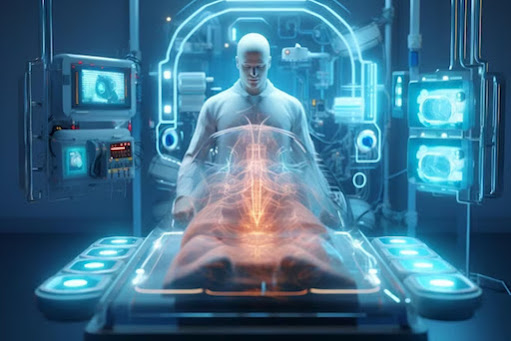In recent years, the global healthcare landscape has witnessed a remarkable phenomenon - the rise of medical tourism. People from all corners of the world are traveling to different countries in search of high-quality and cost-effective healthcare services. While medical treatments and surgeries are the primary reasons for medical tourism, there's an emerging trend that's gaining significant attention: the incorporation of mind-body medicine into the medical tourism experience.
The Rise of Medical Tourism
The past decade has seen a substantial surge in medical tourism, driven by factors such as soaring healthcare costs in developed countries, long waiting times, and the quest for superior medical expertise. Countries like Thailand, India, and Mexico have become popular destinations for medical tourists seeking everything from complex surgeries to wellness and rejuvenation treatments.
The Benefits of Mind-Body Medicine in Medical Tourism
Mind-body medicine is a holistic approach that recognizes the interconnectedness of mental, emotional, and physical well-being. It encompasses practices like meditation, yoga, acupuncture, and mindfulness-based therapies. Incorporating these techniques into the medical tourism experience offers numerous benefits, including reduced stress and anxiety, improved overall health, and enhanced post-operative recovery.
Mind-Body Medicine Techniques and Therapies
Mind-body medicine offers a diverse range of techniques and therapies tailored to individual needs. Meditation and mindfulness can help patients manage pre-surgery anxiety and post-surgery pain, while yoga and acupuncture contribute to physical and emotional healing. These practices promote relaxation, strengthen the immune system, and support a quicker return to normal life.
Case Studies: Successful Use of Mind-Body Medicine in Medical Tourism
Several compelling case studies demonstrate the effectiveness of mind-body medicine in medical tourism. Patients who have integrated these practices into their medical journeys report shorter hospital stays, reduced pain medication use, and an overall sense of empowerment and control over their health.
Choosing the Right Destination for Mind-Body Medicine
Selecting the right destination for mind-body medicine is crucial. Countries like Thailand and India have established themselves as leaders in this field, offering world-class medical facilities and experienced practitioners who integrate mind-body techniques into treatment plans.
Finding the Best Mind-Body Medicine Practitioners
Finding the right practitioners is equally important. Seek recommendations, research their credentials, and ensure they have experience in working with medical tourists. A well-trained and compassionate practitioner can make a significant difference in the success of mind-body medicine interventions.
The Future of Mind-Body Medicine in Medical Tourism
As medical tourism continues to grow, the future holds exciting possibilities for the integration of mind-body medicine into healthcare services. We can anticipate more destinations offering comprehensive mind-body wellness packages to cater to the evolving needs of medical tourists.
Mind-Body Medicine and Its Impact on the Local Economy
The incorporation of mind-body medicine into medical tourism is not only beneficial for patients but also for the local economy of the host country. It can boost tourism revenue, create job opportunities, and stimulate investments in wellness facilities.
Conclusion: Embracing the Power of Mind-Body Medicine in Medical Tourism
In conclusion, the rise of medical tourism presents a unique opportunity to explore the synergy between mental health and physical well-being through mind-body medicine. This holistic approach can enhance the overall medical tourism experience, promoting faster recovery, reduced healthcare costs, and improved quality of life for patients. As the world continues to embrace this powerful connection, the future of mind-body medicine in medical tourism looks bright and promising.

Comments
Post a Comment